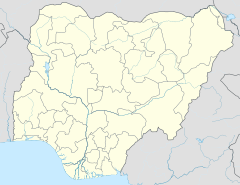2013 Baga massacre
| 2013 Baga massacre | |
|---|---|
| Part of Islamist insurgency in Nigeria | |
| Location | Baga, Borno State, Nigeria |
| Coordinates | 12°32′00″N 13°51′00″E / 12.5333°N 13.8500°ECoordinates: 12°32′00″N 13°51′00″E / 12.5333°N 13.8500°E |
| Date | 16–17 April 2013 |
|
Attack type
|
Mass killing, spree killing, petrol bombing, others |
| Deaths | 37-228+ |
| Perpetrators | Boko Haram |
The Baga massacre began on 16 April 2013 in the village of Baga, Nigeria, in Borno State, when as many as 200 civilians were killed, hundreds wounded, and over 2,000 houses and businesses worth millions of Naira were destroyed. Refugees, civilians officials, and human rights organizations accused the Nigerian Military of carrying out the massacre; some military officials blamed the insurgent group Boko Haram.
Thousands of people have died in fighting in Nigeria since the beginning of 2009 Boko Haram uprising, which began in northern Nigeria. The leader of the uprising, Mohammed Yusuf, was killed in Maiduguri of Borno State in 2009.
According to The New York Times, the Nigerian military has employed "scorched-earth standards" in their fight against Boko Haram, with civilians routinely killed during operations in poor neighborhoods. Massacres prior to the Baga massacre were commonly employed as punitive measures against the civilian population, without legal consequences in Nigeria.
The commander of the Multinational Joint Task Force Brigadier General Austin Edokpaye accused residents of Baga of shielding Boko Haram members prior to the attack.
Baga is a small fishing village on the banks of lake Chad, near the borders of Chad and Niger.
On the evening of 16 April, members of Boko Haram engaged government soldiers at a military post outside Baga, killing one of them. According to residents, soldiers returned with reinforcements supported by armored vehicles. Soldiers then allegedly doused homes in Baga with gasoline and set fire to the village, shooting villagers who attempted to flee. Some attempting to escape into Lake Chad drowned there, while others were able to escape into the surrounding bush. According to residents, the soldiers continued burning homes in Baga on April 17.
Brigadier General Austin Edokpaye stated that only six civilians and one soldier were killed, while the army killed 30 "Boko Haram terrorists." He further stated that only 30 "thatched houses" were burned and that the fires were started by Boko Haram's weapons. Residents and civilian officials alleged that as many as 200 people were killed and more than 2,000 homes were burned. Casualties were reported to be especially high among children and the elderly. By April 17, 193 wounded victims had been admitted to a local health clinic. Satellite images analyzed by Human Rights Watch indicate that at least 2,275 buildings were destroyed and another 125 buildings were severely damaged.
...
Wikipedia

